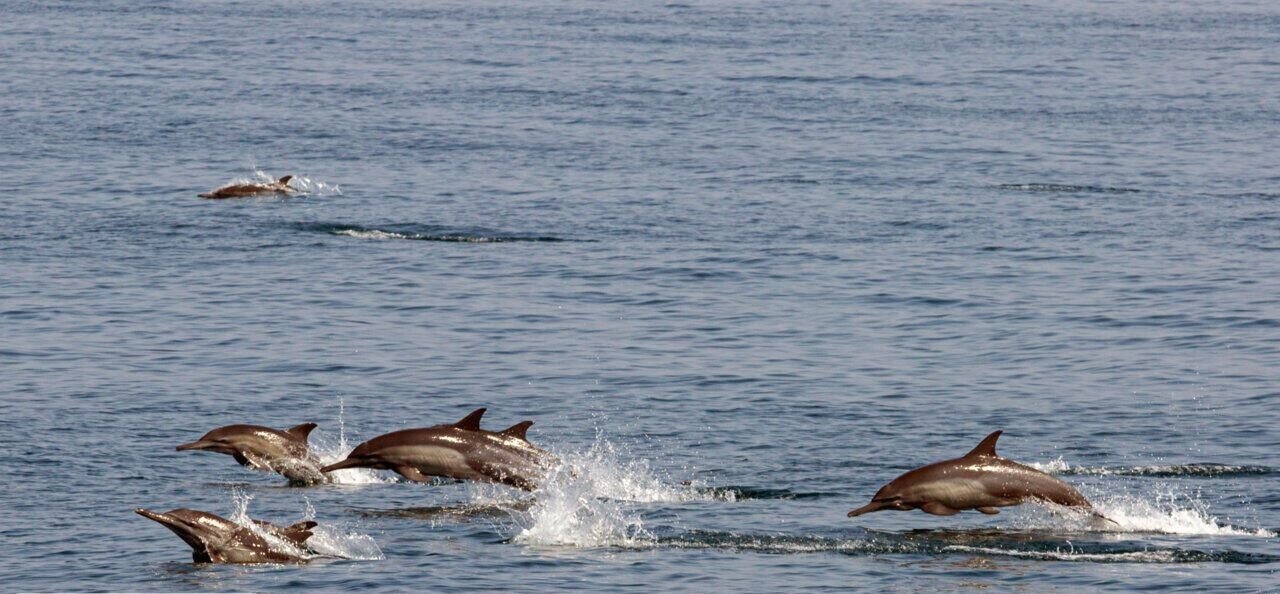DOE, IFO boost ties to conserve aquatic resources

TEHRAN – The Department of Environment (DOE) and the Iranian Fishery Organization (IFO) will boost collaborations to preserve the aquatic resources in the northern and southern seas.
During a meeting held on Sunday, Ahmad-Reza Lahijanzadeh, an official with the DOE, and Hamzeh Rostampour, head of the IFO, discussed avenues to protect aquatic life, natural habitats, including corals and coral reefs, and restore damaged areas in the northern and southern coasts, IRNA reported.
The officials also conferred on ways to protect and develop mangrove forests and estuaries. Estuaries are bodies of water where rivers meet the sea; they are considered one of the critical and fragile local ecosystems that provide feeding and spawning sites for many aquatic animals. Fresh water that flows into estuaries triggers reproduction.
Another raised issue at the Sunday meeting focused on fishing in the Sea of Oman, including the methods, standards, and conditions for issuing permits to fishing vessels.
The standards have been defined; the vessels that have all the required legal documents and are equipped with the needed tools will be allowed to go fishing in the Sea of Oman under full supervision. However, no ship has yet declared readiness following the aforementioned conditions. The same regulation applies to the fishing in the Persian Gulf, Lahijanzadeh noted.
Data bank on species in Persian Gulf, Oman Sea
The head of the Department of Environment, Shina Ansari, has announced the provision of a data bank of more than 5,000 creatures in the Persian Gulf and the Oman Sea, saying that it will serve as a regional and even international platform for the preservation of the biodiversity in these waters.
This includes efforts such as preparing an atlas of sensitive marine ecosystems and the identification of unknown coral reef habitats, such as the Shah Alam area on the maritime border with Qatar, which allows for effective and targeted intervention at a macro level, ILNA quoted Ansari as saying.
The official made the remarks on the occasion of Persian Gulf National Day, which is observed on April 29 every year. The day marks the anniversary of forcing out the Portuguese navy of the Strait of Hormuz in the Capture of Ormuz (1622).
The Persian Gulf and the Sea of Oman, with more than 4,900 kilometers of coastline in Iran, are home to one of the richest marine ecosystems in the world. The DOE has implemented different measures to conserve the biodiversity of the marine ecosystems, such as developing a data strategy and planning tool to implement scientific and data-driven decision-making.
Any preserving measure without legal support and control will fail to succeed. In order to strengthen the regulatory and legal framework, the DOE has developed and issued seawater quality standards, discharge regulations at sea, dredging guidelines, waste disposal regulations, and guidelines on oil pollution damage assessment, the official added.
The DOE is implementing other programs such as coral restoration, registering coastal wetlands in the Ramsar Convention, developing a national action plan for mangrove conservation, and monitoring the marine environment, Ansari further noted.
MT/MG
Leave a Comment